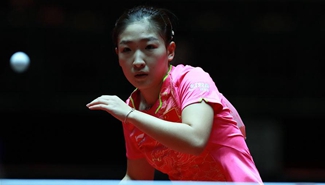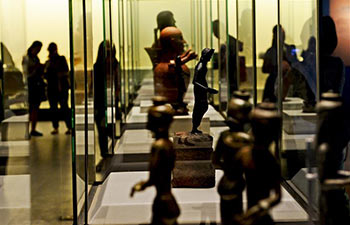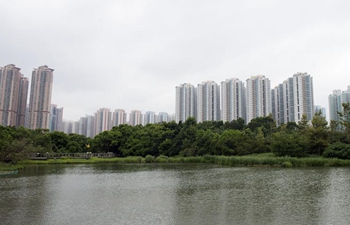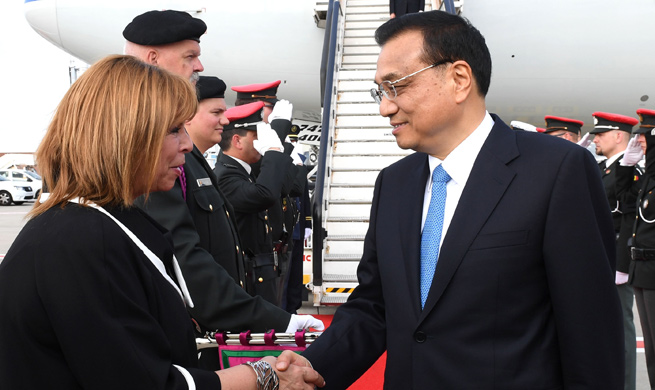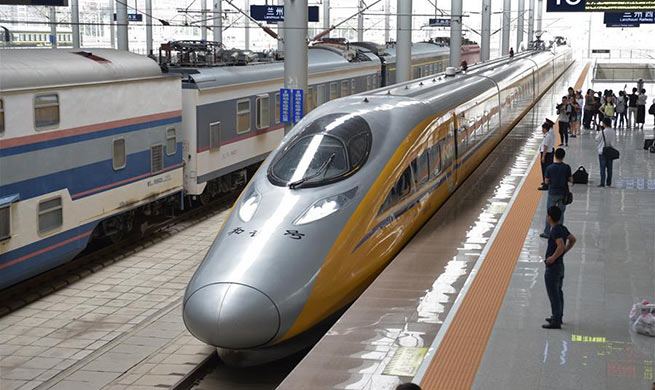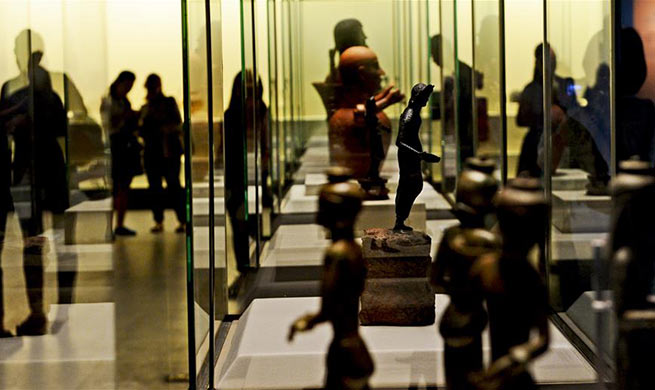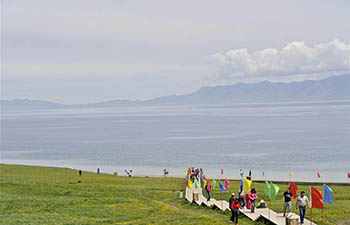by Fei Liena, Zhang Jiawei, Deng Qian
LONDON, June 2 (Xinhua) -- With China continuing its rapid growth, Chinese scientists and researchers are returning home from abroad to aid in their country's development. One of those scientists was the renowned Huang Danian, a geophysicist who returned to China seven years ago from Britain and contributed greatly to deep earth exploration technology.
"Huang Danian's most valuable quality was his sincerity. He sincerely treated his friends well, and loved his family and his motherland," said Sun Wei, a dear friend of Huang.
In January, Huang died of bile duct cancer at the age of 58.
In 1993, he went to Britain's Leeds University to study, and earned his doctor's degree in geophysics, finishing the top of his class.
"When studying in Britain, he combined his Chinese intellectual integrity with British precision," said Sun.
Though having to encounter language and living difficulties in a foreign country, Huang quickly earned respect from his British professors and colleagues thanks to his profound academic knowledge and hard work.
Dr Roger Clark, Senior Lecturer at Leeds University's School of Earth & Environment, used to supervise Huang's PhD work on the quantitative analysis of gravity and magnetic field anomalies.
"As a student, he was clearly very skilled at mathematics, and we enjoyed guiding him into geophysics," Clark said.
"He was certainly a very dedicated student while he was in Leeds, and I heard exactly the same from colleagues in industry," he said.
"I always knew he had the skill and energy to do well in whatever he wanted to apply himself to."
Clark also expressed shock and sadness on Huang's passing-away. "We never think or expect the students we have taught to pass away before us...It's a great loss, both personally and professionally."
Shortly after he obtained his doctor's degree, Huang joined a geophysical service company ARKeX in Cambridge as an advanced researcher on high resolution airborne and marine gravity gradiometry, mainly used in oil, gas and mineral resources exploration at sea and on land.
Huang's team had been deemed by fellow researchers as one of the leading research teams in the industry of mobile detection technology.
Mark Davies, president and CEO of AustinBridgeporth, used to work with Huang at ARKeX for many years.
"I think Huang was an extremely talented geophysicist who pioneered many projects over the years for large independent oil companies," he said.
"He was extremely talented and knowledgeable. Not only a colleague but a true friend too," Davies added.
During his time in Britain, Huang remained committed to China, and his contacts with his motherland had never been broken. He would always fly to China to attend an academic meeting or seminar related to his field.
According to Sun, it's not a "random choice" that Huang later chose to go back to China to work, neither was it a "sudden impulse".
"Danian loved science and technology," Davies said. "He never said why he wanted to go back but it was very obvious to me. China was funding high quality science projects and he wanted to be part of it."
"I always expected Danian to excel at anything he wished to do. It does not surprise me at all." he added.
In 2008, China launched a national recruitment program for global top talent, called the "Thousand Talent" program, as part of its efforts to become an innovation-driven economy. The program encourages overseas Chinese and foreign professionals to work in China.
Huang became one of the first to participate in the program in 2009. He gave up his position in Britain and sold his house and property to work at Jilin University in Changchun.
Upon return, Huang was invited to be the chief scientist of a branch of China's biggest deep earth exploration program. The program aims to install high-tech cameras on aircraft, ships and satellites that enable them to see through the earth's crust without digging into it. Investment in his branch of the program has reached more than 300 million yuan (43.5 million U.S. dollars).
Wasting no time, Huang holed up in his office and worked day and night, with only two to three hours of sleep a day, earning him the deserved title of "workaholic".
"He doesn't take sleeping very seriously," Huang's wife Ren Lijuan once said.
About four months after Huang's passing, his daughter Huang Xiao told Xinhua that her family was still racked in grief.
"Like most loving fathers, my father hoped I would study well. More importantly, he wanted me to grow up to be someone useful to society," she said.
"My father always wanted to serve his motherland, and wanted to be a person helping others," she added.
Huang Xiao said she was proud to know that his father's work was recognized by his homeland, and he was honored as a "sincere patriot and role model" for overseas returnees.
In May, Chinese President Xi Jinping praised Huang's work and called on the public to learn from the esteemed scientist.
"Now with my father gone, I hope my mother can move on to enjoy the rest of her life while I raise my son well," Huang Xiao said. "That's how I can repay my father."




